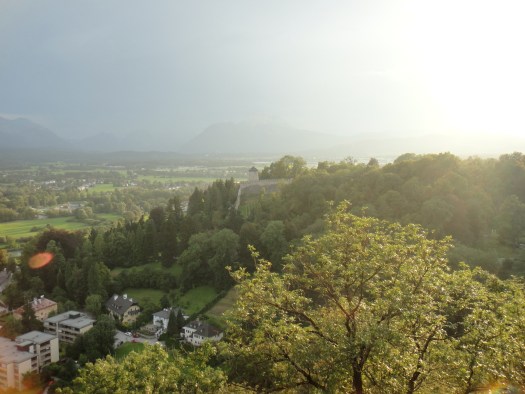You’ve got to do things that make you happy, Cath. It’s okay to take care of yourself.
So I brew lemongrass-ginger tea in my little brown teapot.
I curl up on the couch and knit a blue sweater with white whales on it.
I ask for book suggestions on the sovereignty of God, on the unknown. I start to read Brother Lawrence’s Practicing the Presence of God, Tim Keller’s Every Good Endeavor, A. W. Tozer’s The Knowledge of the Holy. There is comfort in these words.
I journal in haphazard ways, round and around with no goal. I think about making sure I burn all my journals before I die.
I sit beside my roommate as she sings me this song. I sit and look out the window while she plays the guitar.
I buy a few too many dresses for the weddings and other occasions this summer. I wear the mint-green one to work.
I drive with the top down and feel the sun on my winter-skin.
I listen to all the music I love: The Lone Bellow, Ivan and Alyosha, Ray LaMontagne, Josh Garrells.
I sit at the piano and play hymns. We used to sing them with my great-grandmother in the living room, and now they are as much a balm to my soul as they are an offering to the Lord.
I preoccupy myself with apartment searching. I go a little crazy, a little manic. I apologize to my friends profusely, but it pays off. September first will find us moving into a city-apartment that I never thought we’d find.
I re-read old poems, old blog entries. My past self speaks to my present self, and I try to believe her and not feel like I’ve let her down.
I sit by the lake and sip a Dunkin iced coffee. My feet dangle like I am happy, but really it’s just because I’m short.
I imagine teaching my new courses next year. I make a list of books to read, activities to do. And then I stop when this feels overwhelming.
I think about our annual trip to the Cape and the ocean and the fact that the ocean is still there.
It’s been there all along.
So I do these things that make me happy, and I practice patience and trust. Risk involves not knowing what will happen, I know this. Time will tell, they say, and it will.
Give thanks in all circumstances. Like I wrote almost a year-and-a-half ago, we do not know how to praise God because we do not know all that he has spared us from.



















